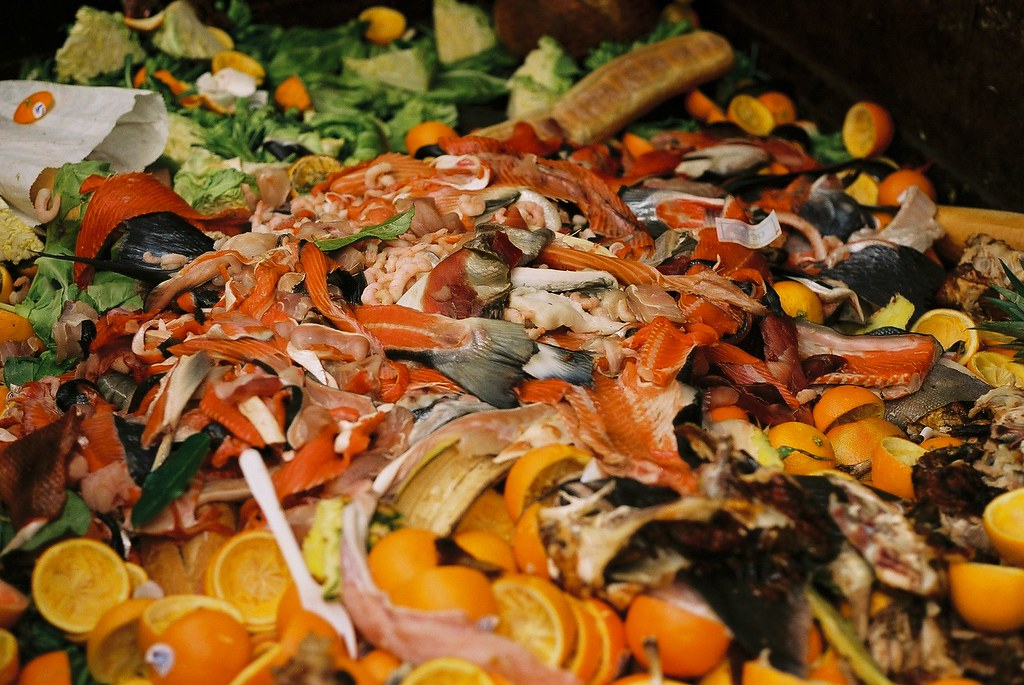Food waste contributes to a tenth of the world’s greenhouse gas emissions. To tackle this, as part of the Welsh Government’s Business, Public and Third Sector Recycling Regulation and DEFRAs Environmental Act, new laws around food waste are expected to come into force in Spring 2024. It is anticipated that this new legislation will mandate that all businesses generating 5kg of food waste will need to separate and recycle their waste.
However, despite the fact that the legislation is set to come into force within the next year, our recent research found that 99% of businesses in the UK either don’t know about the legislation or if they do, have little or no understanding of it.
All is not lost, though. Almost two thirds (62%) of those surveyed did say they are working to gain an understanding of the legislation and over half (58%) are concerned about the carbon emissions that sending food waste to landfill produces.
To identify the blockers and offer some solutions, we held a roundtable with leaders in sustainability from a variety of sectors including hospitality, food retail and care to delve into what the new regulations are and what businesses need from both Welsh and English governments to ensure an effective roll-out. It also uncovered some of the challenges and opportunities businesses are facing when it comes to reducing food waste and the impact this can have on reducing carbon emissions.
In this piece, we’ve collated some of the key insights from our expert speakers.
The role of food waste recycling in achieving net zero
Firstly, it was important to start with why the Welsh and English governments are putting laws in place to ensure businesses are recycling food. Put simply, the ultimate purpose of recycling food waste is to minimise the amount of waste that goes to landfill. This is not only poor practice when considering the levels of food poverty across the UK and elsewhere, but on top of this, when waste is sent to landfill it breaks down and releases greenhouse gases, such as methane, into the environment which contributes to climate change.
“By taking food waste to an anaerobic digestion plant rather than to landfill, there’s a huge carbon saving to be made. For every tonne of food waste we give to anaerobic digestion you’re creating less than ten kilogrammes of CO2 equivalent. With that tonne of food waste that goes to landfill, you’re creating 650 kilos. That means it’s 65 times worse to take food waste to landfill. So, it’s almost an easy win if you put food waste recycling into the net zero strategy” explained, Fergus Healy, head of strategic development and net zero at Keenan Recycling.
Evidently, this shows how recycling food waste can play a key role in businesses own net zero journeys. Tristram Stuart, author, speaker, campaigner and expert on the environmental and social impacts of food waste added to this point that: “We’re looking at a potential gold mine, this huge opportunity of making better use of the resources. And one of the things that many companies have done is include food waste recycling when setting net zero targets. Doing something about food waste is one of the ways any company can be involved in meeting net zero. Whilst adhering to new legislation may be challenging for some businesses, we should all see this an opportunity.”
One such example was from Marten Lewis, head of corporate responsibility from Bluestone National Park Resort, who stated: “Measuring food waste has many benefits but what it’s helped us most with is realising what we’re doing on the procurement side of food. It’s actually helped us procure less food in the first place and adapt our menus accordingly. The solution to reducing food waste in the first instance is to try and avoid it, secondly to recycle it as responsibly as possible, and thirdly to learn as much as you can from the process – which will help you to further reduce it in the first place. Reducing volume and improving the disposal of food waste are key parts of our carbon footprint reduction plans, the emissions from procurement and waste handling sit in Scope 3 emissions, which, now that we have reduced Scope 1 & 2 emissions by over 90%, is a key area of focus for us.”
Everyone agreed that getting food onto people’s plates and reducing food waste in the first place is vital but accepted that ultimately there is always some level of food waste. So, we must collect it responsibly and, where possible, use it to address resource scarcity by transforming it into valuable materials such as compost, energy or gas to help contribute to a circular economy.
The challenges and concerns faced by businesses
Naturally, with any change in law, there are teething problems as processes and procedures have to be adapted.
The three main challenges and concerns identified during the roundtable were:
Reporting and streamlining processes:
- Steve Butterworth, CEO at Neighbourly, stated: “I guess one of my disappointments around the delay in the introduction of the mandatory food waste reporting was that there is a need to have some consistency in how food waste is reported. What the industry battles with is the inconsistency in how waste gets categorised by different retailers and, subsequently, the challenge of then being able to draw comparisons and track progress in a meaningful way.”
Getting people to think differently about their waste:
- Louisa Ballard, head of sustainability at Mercato Metropolitano, added: “When it comes to food waste, it’s the hospitality teams – the people on the ground – that we need to train to separate the waste and find a way of making it easy for them.
Whose responsibility will it be to take care of the waste?
- Kirstin Roberts, lawyer and chair of the Midlands Centre Council of CIWM, said: “The thing I’m hearing is about control of food waste. I’m in conversations with our building’s management company, who the landlord appointed. Our office is half of one floor. We haven’t got a massive say in the management of the actual building. How do we manage our food waste? Once manually separated on our floor what do we do with it, then? The onward logistics for the building is not clear and easy to manage.
- Grant Keenan, managing director at Keenan Recycling, explained: “If I liken it to one of the first big cases that we had similar to that, there’s a big shopping centre in Aberdeen that we work with. Although they have many of their main restaurant chains, a separate company owns and manages the building, so they’re the responsible ones and they take care of the waste for their tenants. The rest of the UK should be following suit.“
What is needed for an effective role out of the new laws to ensure the UK sees an ideal picture of food waste?
From the discussion, it’s clear that there are still many questions when it comes to the practicalities of rolling the laws out. While the Welsh government has provided more clarity around anticipated dates of implementation in recent months, there are still many question marks for DEFRA.
So, what do DEFRA and the Welsh government need to do to ensure an effective rollout and support businesses through the changes?
- Steve said: “We need consistency of what’s being reported, how it’s being reported, so that it’s all classed in the same way so that it’s a level playing field.”
- Kirstin stated: “In terms of sustainability generally, if you can sell best practice as a cost saver instead of a cost, that is a way to assist the smaller SMEs. We need to vocalise the benefits both environmentally and financially to encourage and support small to medium sized businesses.”
It was interesting – but unsurprising – to hear that many businesses are concerned that there may be unexpected costs or investments when it comes to recycling food waste. However, the fact that food waste recycling is expensive is a misnomer.
In fact, research from our survey of over 200 businesses in the UK found that, actually, businesses could save up to £7,000 a year by recycling their food waste instead of sending it to landfill.
Grant concluded:
“This discussion has certainly given us all food for thought on what we need to be doing to gain a better understanding of how we can tackle food waste and comply with the forthcoming legislation. It is clear that across industries, we’re all doing great things to reduce food waste, however, it’s being done in silos. We’re not adopting a holistic approach. So for me, the question isn’t whether we care or not – we all do – but it is instead about how we knit it all together to reach our shared ambition.
“Across Scotland, we have experienced all of the issues the rest of the UK now faces and overcome them. So, we know first-hand that implementing food waste recycling procedures is possible. The challenge is how we collaborate across sectors to instil best practice across England and Wales too.
“So, while the new legislation will inevitably present some challenges to English and Welsh businesses, it also presents a number of opportunities. Adopting a greener approach is not only possible but it is also vital to the benefit of the global society and can have a positive impact on business and attracting new customers, too.”
Since the roundtable, the Welsh Government has sought further input from Keenan to help inform its policy as it gets closer to the workplace recycling regulations being laid. It is our mission to continue advising both businesses and UK governments on how they can make the incoming laws a success and provide businesses with the information they need to successfully adopt food waste recycling.
If you’re based in England or Wales and would like support on how to prepare and get ahead of the curve for the incoming legislation, please contact us.


